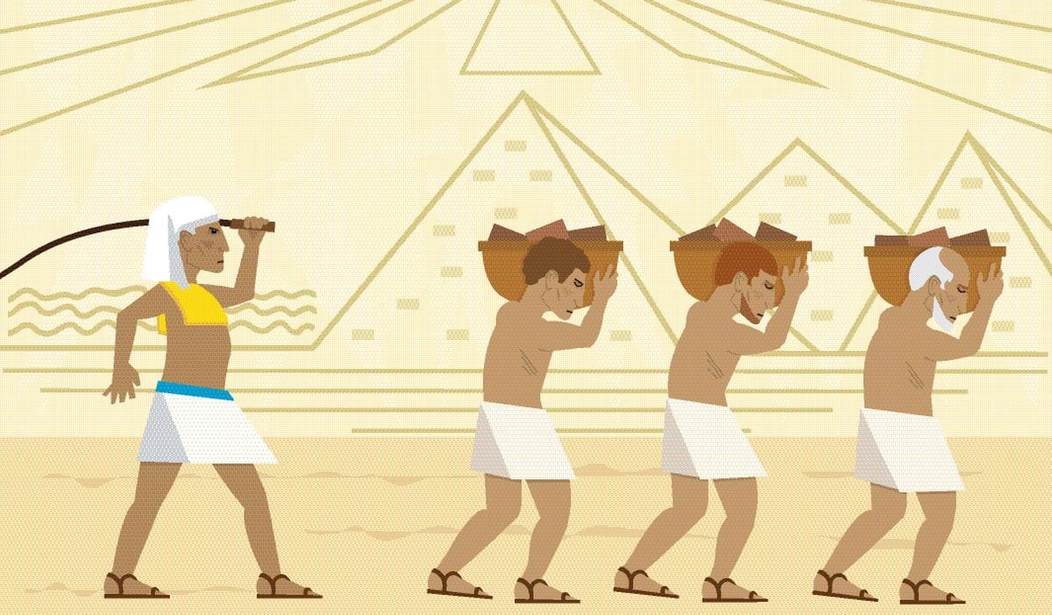A new survey by the Walk Free Foundation, a global organization with a mission to end modern slavery, reveals that nearly 46 million people are held in some kind of bondage worldwide.
The 2016 Global Slavery Index, a comprehensive effort to discover where slavery is most prevalent and how many people are held in bondage, found that there were 28% more slaves than previously shown in past surveys. The increase was due to better data-collection methods and superior methodology.
People are considered to be enslaved by human trafficking, forced labor, debt bondage, forced or servile marriage, or commercial sexual exploitation.
Some highlights from the Survey:
North Korea is the country with the greatest prevalence of modern slavery, with 4.37% of its population estimated to be enslaved. It is also the country with the weakest government response in terms of actions taken to combat modern slavery. The next highest prevalence of slavery is found in Uzbekistan (3.97%), followed by Cambodia (1.65%).
Canada and the United States are among the list of nations that demonstrate the lowest prevalence of slavery in the 2016 Index, at 0.018%, along with many Western European countries, and Australia and New Zealand. In absolute numbers, the United States is estimated to count 57,700 and Canada 6,500 enslaved people.
In terms of absolute numbers, India remains the highest with an estimated 18.35 million enslaved people, followed by China (3.39m), Pakistan (2.13m), Bangladesh (1.53m) and Uzbekistan (1.23m). Combined, these five countries account for almost 58% of the world’s enslaved, or 26.6 million people.
The 2016 Global Slavery Index estimates that 28% more people are enslaved than reported in the 2014 edition. This significant increase is due to enhanced data collection and research methodology. Survey research for the 2016 Global Slavery Index included over 42,000 interviews conducted in 53 languages across 25 countries, including 15 state-level surveys in India. These representative surveys cover 44% of the global population.
In 2016 the Walk Free Foundation, Gallup, and Polaris undertook survey research to better understand the general awareness of the NHTRC’s hotline number among the American public, through the Gallup U.S. nightly public opinion survey. Ultimately, the results suggest that a relatively small proportion of the American public are informed about it, with only 6.7% indicating they know the NHTRC specifically and 12% aware that there is a hotline focused on human trafficking. This indicates that the 5,544 cases reported in 2015 is likely a small proportion of the actual prevalence of human trafficking in the United States.
It’s estimated that there are 57,700 slaves in the U.S. Efforts by the Obama administration to combat global trafficking have been met with praise, largely because the U.S. government has enlisted the aid of private industry in making sure their supply chains are not using slave labor.
Most slaves are not trafficked across international borders, but rather enslaved within their own countries. A 2006 State Department report estimated that there were 800,000 people who were taken across international boundaries and held against their will.
At risk are migrant workers who are promised a job, housing, and food in return for their labor. Unfortunately, in many cases, the migrant is not informed that the benefits will be coming out of his pay. Slavers will charge more for food and housing than the migrant earns, thus putting him into debt — a debt he must pay off before he can leave.
This scheme is prevalent in the Middle East, most recently in Qatar where tens of thousands of migrants are constructing stadiums for the 2022 World Cup soccer matches.
Amnesty says workers at Khalifa International Stadium are forced to live in squalid accommodation, pay huge recruitment fees and have had wages withheld and passports confiscated.
It also accuses Fifa of “failing almost completely” to stop the tournament being “built on human rights abuses”.
Qatar said it was “concerned” by the allegations and would investigate.
The government said the welfare of migrant workers was a “top priority” and insisted it was committed to systematic reform of Qatar’s labour laws.
Fifa, the governing body of world football, said measures had been taken that had already improved the situation for migrant workers.
Last year the country pledged to makes changes to its “kafala” sponsorship system, under which migrant workers cannot change jobs or leave the country without their employer’s permission.
But Amnesty warned the proposed reforms would make little difference and said some of the workers were enduring a “living nightmare”.
“All workers want are their rights: to be paid on time, leave the country if need be and be treated with dignity and respect,” said general secretary Salil Shetty.
Amnesty interviewed 231 mostly South Asian migrants – 132 working at the stadium and 99 on green spaces in the surrounding Aspire sports complex.
It said staff of one labour supply company used the threat of penalties to exact work from some migrants such as withholding pay, handing workers over to the police or stopping them from leaving Qatar.
This amounted to forced labour under international law, Amnesty said.
The Qatari government said its Ministry of Administrative Development, Labour and Social Affairs would investigate the contractors named in the report.
But Amnesty said every migrant it had interviewed had reported abuses of one kind or another, including being:
- required to pay fees of up to $4,300 to recruiters in their home country to get a job in Qatar
- deceived over the type of work and the pay on offer, which was sometimes half as much as they were promised
- threatened for complaining about their conditions
The process of getting kidnapped girls and young women to force them into sexual slavery across an international border includes corrupt officials — border guards and perhaps even high-level government workers. Otherwise, governments like Qatar turn a blind eye to most of the trafficking and forced labor, largely out of a sense of indifference but also because of bribes paid by contractors.
Slavery has been a human institution since before we organized ourselves into nation states. Native American and African tribes kept slaves, as did every major empire from the Sumerians to the British. The ILO estimates that profits from trafficking top $150 billion, making it the third-largest criminal enterprise in the world behind drugs and arms sales.
But for the first time in human history, there is a worldwide effort to combat slavery in all its forms. Perhaps the next survey taken by the Walk Free Foundation will show fewer people living the nightmare of being held against their will.










Join the conversation as a VIP Member